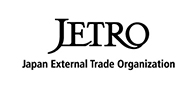Key Findings:
A complete market research report, including forecasts and market estimates, technologies analysis and developments at innovative firms within the Sharing & Gig Economy, Freelance Workers & On-Demand Delivery Industry. Gain vital insights that can help shape strategy for business development, product development and investments.
Key Features:
-
Business trends analysis
-
In-depth industry overview
-
Technology trends analysis
-
Forecasts
-
Spending, investment, and consumption discussions
-
In-depth industry statistics and metrics
-
Industry employment numbers
Additional Key Features Include:
Industry Glossary
Industry Contacts list, including Professional Societies and Industry Associations
Profiles of industry-leading companies
-
U.S. and Global Firms
-
Publicly held, Private and Subsidiaries
-
Executive Contacts
-
Revenues
-
For Public Companies: Detailed Financial Summaries
Pages: 238
Statistical Tables Provided: 03
Companies Profiled: 150
Geographic Focus: Global
Price: $399.99
Key Questions Answered Include:
-
How is the industry evolving?
-
How is the industry being shaped by new technologies?
-
How is demand growing in emerging markets and mature economies?
-
What is the size of the market now and in the future?
-
What are the financial results of the leading companies?
-
What are the names and titles of top executives?
-
What are the top companies and what are their revenues?
This feature-rich report covers competitive intelligence, market research and business analysis—everything you need to know about the Sharing & Gig Economy, Freelance Workers & On-Demand Delivery Industry.
Plunkett Research Provides Unique Analysis of the Following Major Trends Affecting the Sharing & Gig Economy, Freelance Workers & On-Demand Delivery Industry
-
Introduction to the Sharing & Gig Economy Industry
-
The Coronavirus’ Effect on the Sharing & Gig Economy
-
The Sharing & Gig Economy’s Effect on Employment, Work Life and Careers
-
Gig Workers’/Drivers’ Rights & Employment Status Evolve
-
Repairs, Errand-Running, Pet Walking and Assembly-on-Demand Businesses Evolve
-
Sharing Economy Gains Market Share in Travel with Online Sites Like Airbnb, Vrbo and Many Global Competitors
-
Private Jet Sharing and Rentals Are Big Business/Semi-Private Airlines Compete
-
Uber, Lyft and Didi Dominate the Car on Demand (Ride Hailing) Industry
-
Self-Driving, Autonomous Cars Receive Massive Investments in Research and Development Worldwide
-
Bicycle Sharing Grows, Is Well Established in Major Cities
-
Demand for Home Grocery Delivery Service Such as Instacart and Amazon Fresh Soars
-
Meal Kits from Firms like Blue Apron Make It Easy to Prepare Home-Cooked Meals
-
Grubhub, DoorDash and Others Deliver Restaurant Meals and Household Items to Homes
-
Fashion Rental Pioneered by Online Apparel Firm Rent the Runway
-
Shared Spaces for Co-Living and Co-Working Face Challenges
-
Gig Economy and Self-Driving Cars Pose Insurance Challenges and Underwriting Opportunities
-
The Future of the Sharing Economy and Gig Workforce: Regulation, Benefits, Licensing and Soaring Growth
Plunkett Research Provides In-Depth Tables for the Following Sharing & Gig Economy Industry Statistics
-
Sharing and Gig Economy Industry Statistics and Market Size Overview
-
Persons Not in the Labor Force and Multiple Jobholders by Sex, U.S.: 2022-2023
-
Share of U.S. Adults Performing Gig Work: 2022



















